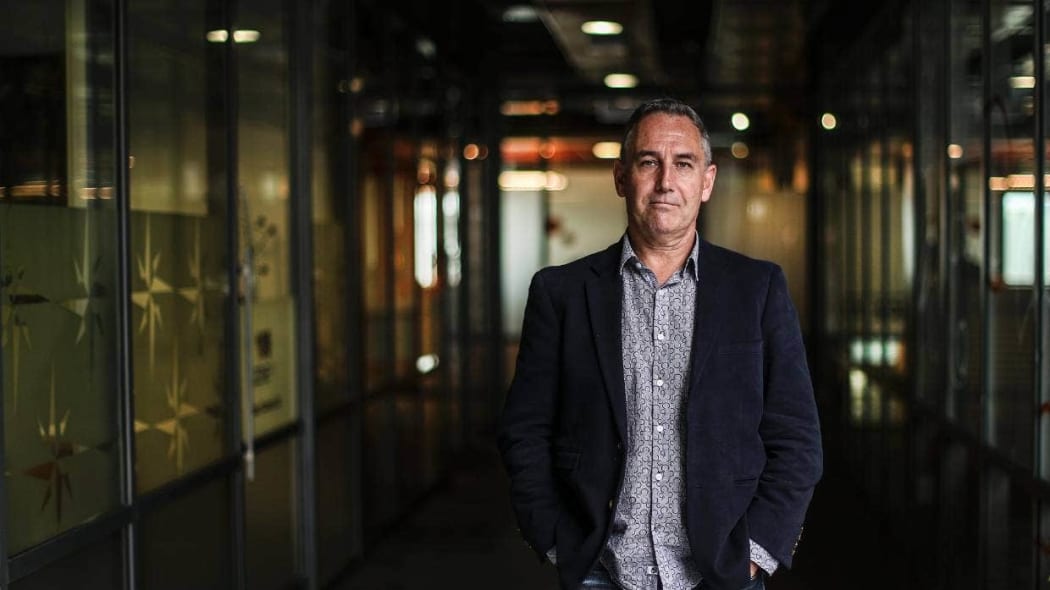There's been plenty of media coverage on the mental health effects of the pandemic. Mental Health Foundation Shaun Robinson says a lot of it has been too simplistic, or just plain wrong.

Mental Health Foundation CEO Shaun Robinson says the pandemic is having a mounting impact on the mental wellbeing of Auckland's population. Photo: CHRIS SKELTON/STUFF
Newstalk ZB host Kate Hawkesby passed on a startling prediction last month.
Though Covid-19 has killed five million people across the globe an even worse pandemic could be on its way, she said.
“Some say the mental health shadow pandemic will be bigger than the Covid one,” she said.
It’s unclear what evidence Hawkesby was using to make that prediction, though a 9News report in Australia a week earlier also warned of a shadow mental health pandemic among children.
The broadcaster was among a host of commentators making sweeping statements about the mental health problems caused by Covid-19 over the last 20 months.
Rumours about skyrocketing suicide numbers have regularly swirled around social media, and that speculation has occasionally seeped into the news.
Last year an anonymous, untrue claim that suicides had risen to six a day caught the attention of privacy commissioner John Edwards, opposition leader Judith Collins and thousands of others on Twitter.
In reality, suicides dropped from 637 the year to June 2019 to 628 in the year to June 2020, and further again to 607 in the latest figures.
Damien Grant, a consistent advocate for ending lockdowns, cited their emotional toll on business owners in a column last year.
Matthew Hooton turned to evolutionary psychology in a column outlining why he believed ongoing lockdowns were untenable.
“Humans evolved to need connectivity, including beyond the nuclear family. Forming bands of hunter-gatherers, netball players or macramé enthusiasts is not an optional extra but essential to human mental health and survival,” he wrote. “Happy hermits exist only in fiction.”
Kerre McIvor also lamented the effects of lockdown on business owners in a column earlier this month, where she jokingly threatened to join Brian Tamaki’s next protest if Auckland didn’t leave Level 3.
These columns have been supplemented by frequent news stories covering the mental health effects of lockdowns.
Mental Health Foundation chief executive Shaun Robinson says much of the commentary and reporting has failed to adequately cover the counterfactual: the mental health effects of ending lockdowns and allowing Covid to spread.
Those would include grief over the increase in deaths, distress about changed health, and the fear and anxiety that accompanies an out-of-control pandemic, he told Mediawatch.
“The alternative scenario to what we’re facing now has very big threats to people’s mental health and wellbeing,” he said.
“I’ve been quite angry at some of the people who have a political agenda around ending lockdowns, who have quite insincerely tried to link mental health and suicide rates to the lockdowns as an argument to say ‘this strategy of lockdown is terrible and we should change it’.”
The Mental Health Foundation revealed this month that it had been approached by a journalist urging it to denounce lockdowns over their effects on people’s emotional wellbeing.
Robinson says there’s still too little data to make firm conclusions about the long-term mental health effects of lockdowns and the pandemic - though responses to past crises can be a guide.
He points to the aftermath of the Christchurch quakes, where the immediate aftermath of the disaster had a galvanising effect on many people in the city.
“It actually boosts people’s mental health in the first instance. That’s because people feel like they’re part of something,” he says. “It’s the long tail following the disaster or community threat that can have significant effects on people’s mental health or wellbeing.”
Though that long tail could be difficult, he warns against inferring that inevitably means an increase in mental illness.
“There’s a difference between mental wellbeing and mental illness. There’s a general feeling of low mental wellbeing. That’s quite different from people becoming mentally unwell,” Robinson said.
“Someone like Kate Hawkesby says anxiety is through the roof. Well, what does she mean? We’re all feeling a bit anxious, a bit worried, but there’s a big difference between that and saying clinical anxiety is through the roof.”
Robinson urges anyone covering the mental health impact of the pandemic to read He Aha Oranga which defines mental illness and wellbeing, and diagnoses the systemic problems underlying issues like New Zealand’s high suicide statistics.
Reporting that’s infused with that kind of understanding would be more helpful than the often agenda driven, anti-lockdown commentary, he says.
“Some journalists are really good. They think hard. They want to look at the whole picture. Others in the media, quite frankly, are lazy,” he told Mediawatch.

